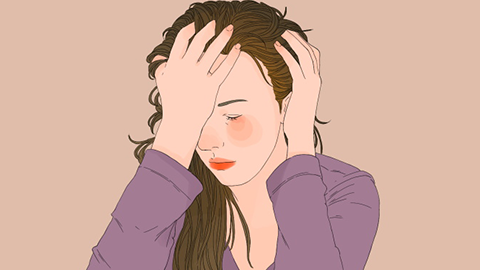Why do I always feel anxious and afraid when facing problems?
Generally, constantly feeling anxious and fearful when facing events may be caused by neurotransmitter imbalances, lack of security, neurasthenia, generalized anxiety disorder, cardiac neurosis, or other reasons. It is recommended to seek medical attention promptly, identify the underlying cause, and receive appropriate treatment under a doctor's guidance. Detailed analysis is as follows:

1. Neurotransmitter Imbalance: Abnormal secretion of serotonin and dopamine reduces emotional regulation capacity, making individuals prone to exaggerate risks and experience anxiety when facing situations. Maintain regular sleep patterns and avoid staying up late; eat more nutrient-rich foods such as nuts and bananas; practice 15 minutes of deep breathing daily to stabilize nervous system function.
2. Lack of Security: Past childhood experiences or setbacks may lead to excessive psychological defense mechanisms, causing individuals to anticipate negative outcomes and feel fear when encountering events. Build confidence gradually by successfully handling small tasks and giving self-affirmation after each completion, thereby enhancing problem-solving confidence over time.
3. Neurasthenia: Prolonged mental stress leads to hyperexcitability and easy fatigue of the nervous system, resulting in more intense emotional fluctuations when facing events. Patients may take medications such as oryzanol tablets, vitamin B1 tablets, or diazepam tablets as prescribed, combined with regular physical exercise to relieve nervous system pressure.
4. Generalized Anxiety Disorder: Characterized by persistent excessive worry, symptoms of anxiety and fear worsen when facing events, often accompanied by palpitations and insomnia. Medications such as buspirone hydrochloride tablets, tandospirone citrate capsules, or lorazepam tablets should be taken as directed by a physician, along with cognitive behavioral therapy.
5. Cardiac Neurosis: Autonomic nervous system dysfunction causes sympathetic nerve activation during stressful events, leading to chest tightness and palpitations, which further intensify anxiety and fear. Medications such as metoprolol tartrate tablets, oryzanol tablets, or alprazolam tablets may be used as prescribed. In severe cases, stellate ganglion block may be performed to regulate nervous system function.
In daily life, avoid overthinking when facing problems; instead, list issues and potential solutions clearly. Communicate frequently with family and friends to alleviate psychological burden through social support. Cultivate calming hobbies such as calligraphy or fishing to improve emotional stability and reduce occurrences of anxiety and fear.




